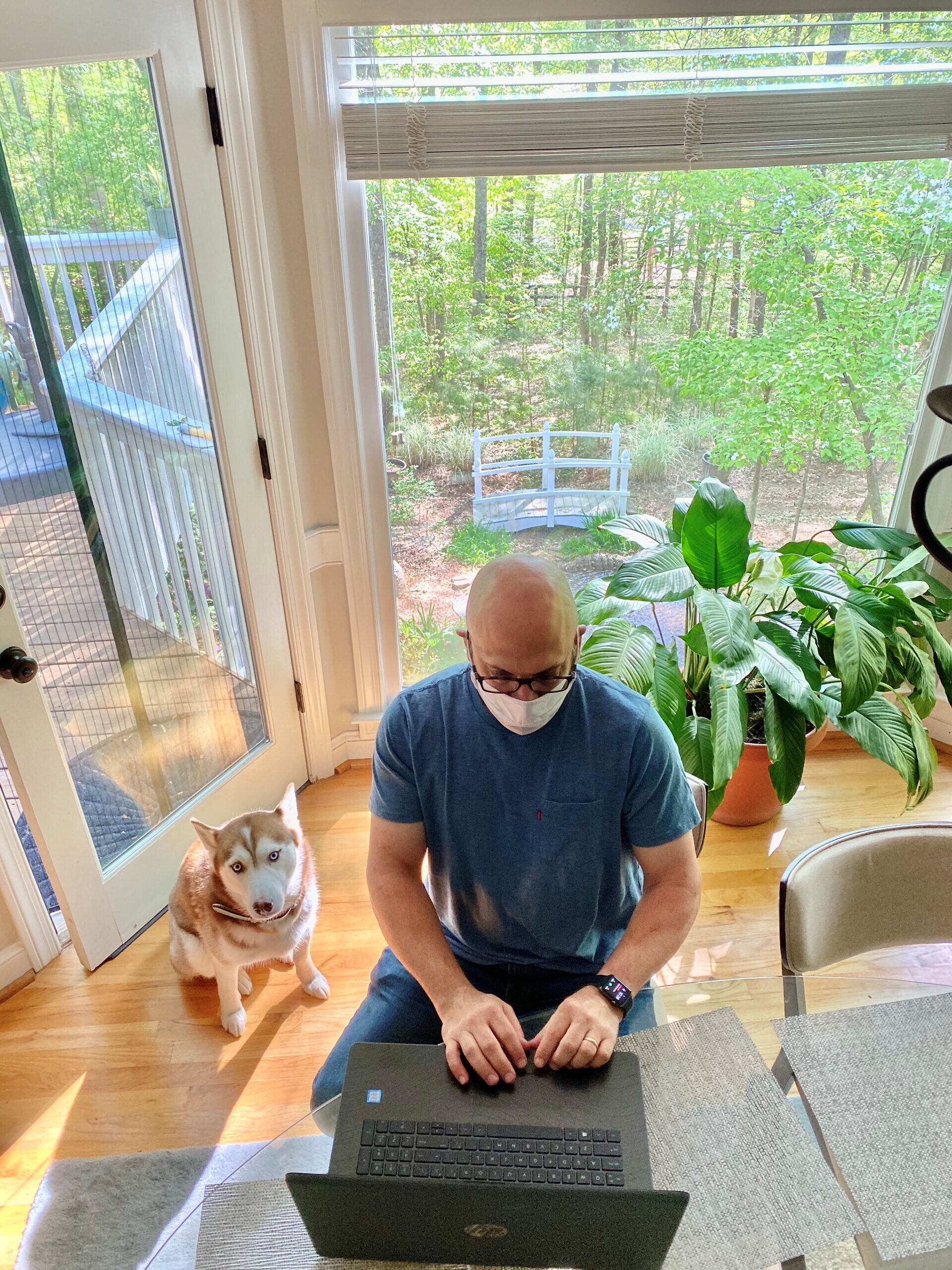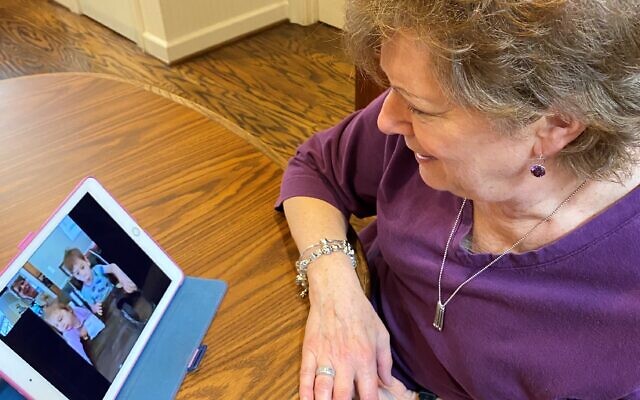How Jewish Seniors Navigate Technology
The challenges of those who didn’t grow up at a digital keyboard.
Forced by today’s novel COVID-19 pandemic to stay at home, Jewish seniors are turning to digital technology more than ever before to stay connected.
Even before the health crisis, Americans ages 65 and older were internet users, according to a Pew Research Center study last year. And a little over half of that age group were also smartphone owners, the study found.
Some people in their 70s or older might agree with Tobyanne Sidman who said that “today the world assumes that every method of communication that people want to use is on a computer or cell phone.” Her grandchildren’s preference for text messaging makes her yearn for the days when people exclusively spoke on landline telephones to keep in touch.
Sidman said she considers herself “to be in pre-kindergarten when it comes to computers.” She told the AJT that the only things she knows how to do is turn on her desktop computer to read and send emails and she recently learned how to use Zoom for a family seder. Instead of using website chat rooms or following written directions, a friend she pays helps her once or twice a month to handle any computer issues that come up. Because of COVID-19, her friend works with her by telephone. Sidman told the AJT she may need to learn to use FaceTime on her iPhone, which would combine seeing her family and hearing their voices at the same time.

Keeping in close contact with her family is also important for Donna Salus. She checks in with her young grandchildren by using FaceTime on her iPad about twice a day, talking to them, watching them play with toys, asking what they had for breakfast. On March 18 her Hebrew class at Congregation Beth Shalom went online through Zoom. This required a Google search for “app store,” and then to download the Zoom app, which she said gave clear instructions on how to sign in for Zoom sessions when invited. She said Zoom is “a great way to continue attending Hebrew classes, a book club with friends, Peach State Stitchers meetings and enjoying a family seder.”
When family, neighbors or friends can no longer stop over to help, or when computer popup messages read like Greek, it may be time to call a professional like Nathaniel Lack, owner of Computer House Calls, who has catered to the Atlanta Jewish community for over 30 years. With over 5,000 clients in the metro Atlanta area, Lack notes that a majority of his clients are over 50 and Jewish.
According to Lack, customer needs vary dramatically, with some contacting him almost weekly while others call every few years.
“The first thing people do is jump to conclusions when the computer acts up. They think it must be a virus. But nine out of 10 times, it is often something else.” He says for seniors, “some common technical issues may include misfiled documents, settings changes that alter computer behavior, and, yes, malware caused by accidentally clicking fake webpage warnings about viruses and other scams targeting seniors.”
Lack considers himself a “computer therapist” rather than a techie because he “reduces anxiety while solving problems.”
During the current pandemic, Lack observes that many calls come from people now working remotely from home where they remain quarantined. Others use their technology to stay connected to friends and family, which for seniors can be essential to easing anxiety and stress. One client in his 90s who lives in an assisted living home continues sending emails to grandchildren in South Africa.
For Lack’s house calls today, he wears a mask made from a kippah like others he’s crafted from his children’s b’nai mitzvah collection, to have a new one for each visit. He follows CDC guideline for hygiene, sanitizes before and after leaving a home, and keeps a safe distance from the customers, for their safety and his. For many problems, Lack said he offers remote help using TeamViewer remote desktop software when a home visit is not necessary.
Following today’s CDC stay at home guidelines, seniors can still remain in touch with loved ones even without IT devices. There are still telephones with numbers to push. Yet, seniors of all ages will probably be using FaceTime and other IT devices more in the future, if only to stay well connected to their families and friends.




comments